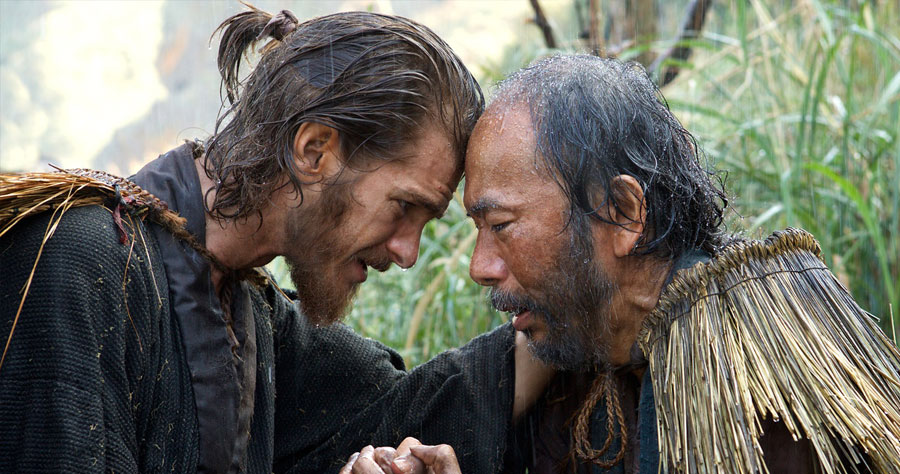This is response to the review of this movie by Mr Brad Miner which appeared in Position Papers in January.
The early part of the movie portrays the heroism, fortitude, courage and faith of those Jesuits who set sail for Japan in the 17th century. Later their struggles with their vocation is evident in the face of mighty contradictions. The early part of this movie led me to prayer. I cannot say that about many movies in the past twenty years.
On reading the critique of the movie by Mr Miner, I wondered if he is judging the movie in the light of the director and his Catholicism and not the movie itself. In reference to Mr Scorsese I can only plead ignorance.
It may be accurate to say that the movie is about apostate priests but that, although possibly a part of history, is not the whole story. That the main character apostatised is not clear. At one point, he is shown to be stepping on an image of Christ. It is clear that he does this because he thinks it’s the only way to save others from certain death. The final scene of the movie has him holding a crucifix in death, suggests he never really apostatised.
I am reminded of the book Memoirs by Cardinal Minzenty of Hungary who after torture in a communist prison in the 50s wrote a “denial” of the Catholic faith, but after his name wrote the letters C.F, signifying coactus fecit in Latin, which means “done under duress”, thereby rejecting responsibility for his action.
The Judas figure of Kichijiro is the epitome of human weakness. But could he not be a “Peter”. He is taken out at the end of the movie, presumably to be killed, not because of apostasy but because he was found with a religious image. It is a story of fidelity in spite of enormous weakness. The insistence with which he repeatedly asks with humility for the sacrament of confession is edifying and speaks of a profound faith.
It could be argued that the main apostate priest, Fr Ferreira, could be seen from the dialogue to be psychologically disturbed. He seems to be held in a state of semi captivity as does the main character of the movie. The Japanese demand repeated periodic denials from them, which also suggests that they may never have really apostatised. The Japanese themselves are not completely sure.
Whatever the perspective, the movie sheds a glorious light on the Japanese martyrs and the history of the Church in Japan. There are many other similar stories worthy of movies. In Africa their stories are beginning to be written. They should be on sale in every Catholic bookstore in the world to inspire future generations of young people with the ideals that led so many missionaries to do what they did and contribute so much to the development of so many countries.
These were people who lived their faith seriously. The movie can help many Catholics to know history and not be in La La land.
The movie is worth watching, thought provoking, it will give rise to not a small amount of discussion but from a cultural and historical perspective it is worth the time. It should have been given all the nominations other movies got.
The latter part of the movie speaks of the “silence of God”. It is powerfully done. God has been speaking silently in the soul of the protagonist all along. It is subtle but clear. Hence the title of the movie and perhaps its most impressive message.
About the Author: Fr Conor Donnelly
Fr Conor Donnelly qualified as a medical doctor in University College Dublin in 1977 and worked as a house physician and surgeon for one year at St. Vincent’s Hospital, Dublin. He was ordained a priest in 1981 for the Prelature of Opus Dei. He obtained a doctorate in Theology from the University of Navarre, Spain in 1982. He is at present the chaplain of Kianda School for Girls, Kenya.

